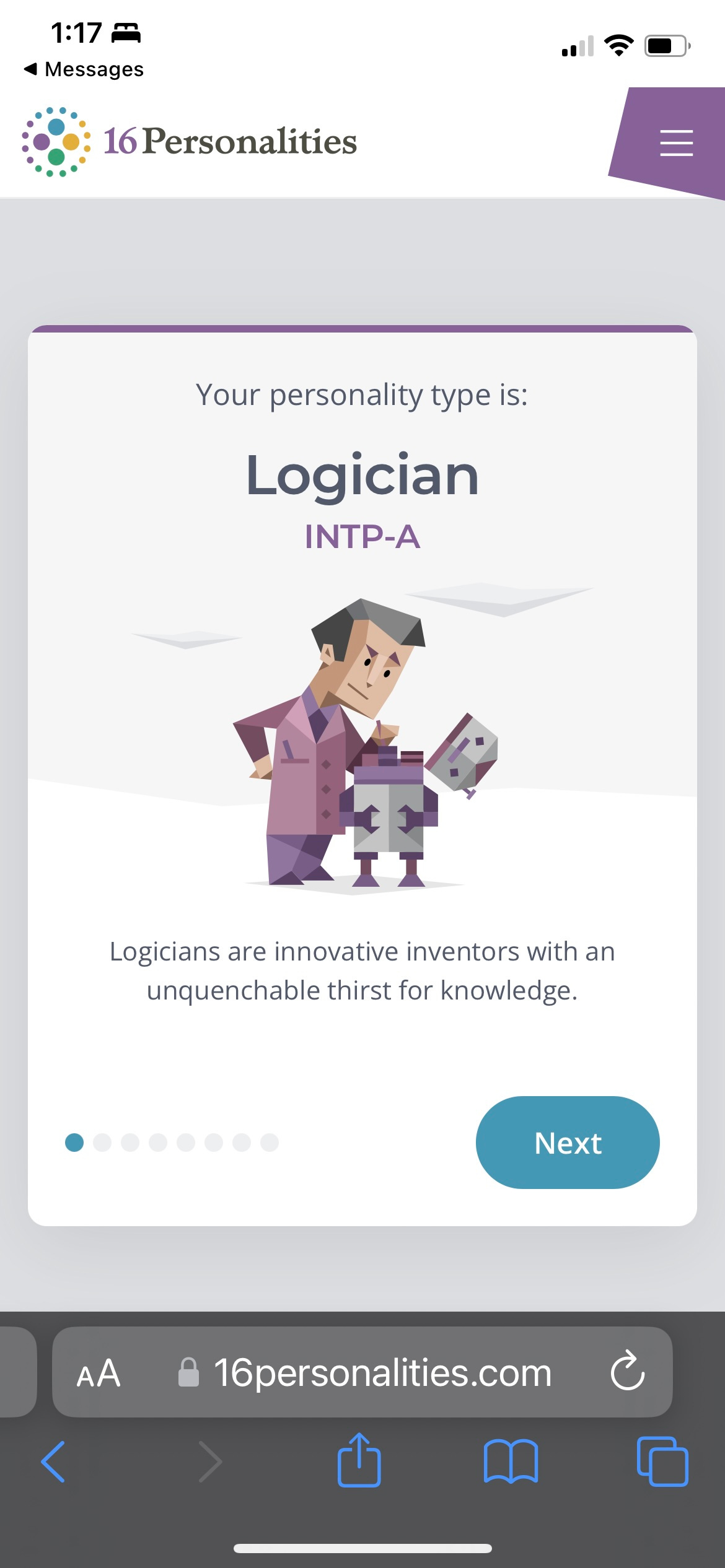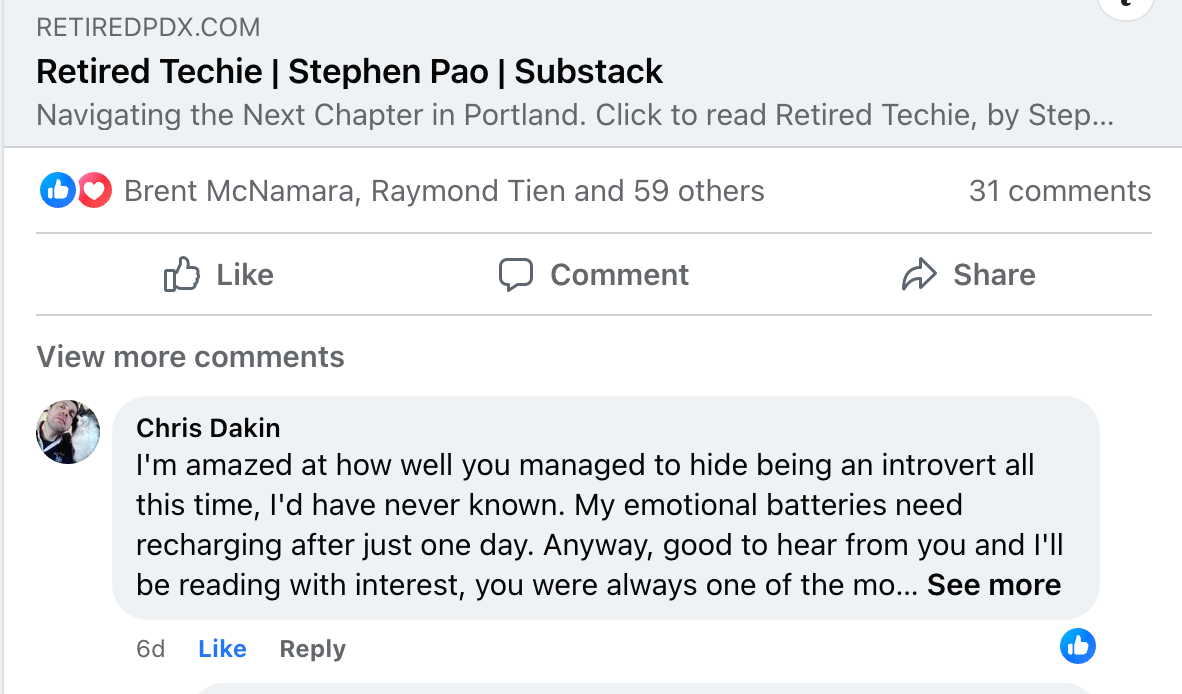Am I really an introvert?
"Sometimes you just need to lay on the couch and watch YouTube for a couple of years."
One point of this Substack is sharing my process for understanding myself with the hope that it may help others, too. In this context, I thought I’d share a bit further the subtlety in the distinction between introversion and extroversion for me.
Technically, my test results show “slight” introversion, but I consider myself a pretty clear introvert!
For context, I formally tested in the Myers-Briggs Type Indicator (MBTI) as an INTP (Introversion, Intuition, Thinking, Perceiving) during an executive coaching program I participated in over 10 years ago.
More recently, in retirement, I have got consistent results using a free test on the Internet.
Often, people are surprised to learn that I am an introvert. Since launching my Substack, I’ve gotten numerous comments about this. Here’s an example from Facebook.
The MBTI provides some further detail on the potential source of disconnect. In terms of testing, my introversion is “slight.”
And, the reason for this is that my “enthusiastic” expression (“lively, energetic, seek spotlight”) is “out-of-preference.” The challenge, as my psychologist in the executive coaching program explained to me at the time, is that I score toward the “intimate” side, too, which translates to a preference to have deeper relationships with a handful of people rather than a broad collection of acquaintances. Too much social contact can drain me! So, my “enthusiastic” expression can be misinterpreted, and I basically was told that I might be able to lower my energy level in larger groups to avoid any misunderstandings.
However, I believe it is also relevant to talk through how I consider myself, not just how I test.
Despite testing with just “slight” introversion, I consider myself an introvert. This self-consideration was actually revealed through the FIRO-B tool done during the same executive coaching program. The FIRO-B tool evaluates interpersonal needs of inclusion, control, and affection.
Here was the FIRO-B summary of my overall needs, and it resonated with me:
Boom! 💥
It is nice that these types of tools exist. I find it hard sometimes to put words to how I feel, and it’s helpful for me to have this type of language to provide these descriptions, not only to understand them but to communicate them, too.
Do you have similar experiences with these types of tools to help you understand yourself?
Are you often misunderstood by others?









I would have considered myself an extrovert when I was younger, but I now see a lot of that was a need for validation from others. I wonder if it’s a natural progression for some of us extroverts to become more introverted with age. Perhaps we find more validation and self-confidence from our body of work and accomplishments over time?